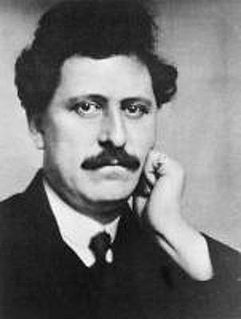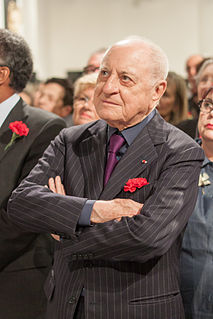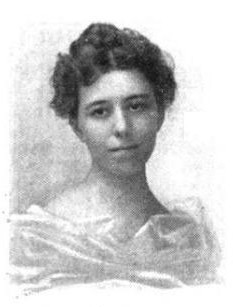A Quote by Holbrook Jackson
A large, still book is a piece of quietness, succulent and nourishing in a noisy world, which I approach and imbibe with "a sort of greedy enjoyment," as Marcel Proust said of those rooms of his old home whose air was "saturated with the bouquet of silence."
Related Quotes
I love Marcel Proust, but I leave him to his nostalgia. I don't approach art the way most people do. I don't get into Proust by imagining that I am Charlus or whoever. It's the same thing in painting - I try to look at it objectively. There's no pathos in that. It's like Bach's "Goldberg Variations." They have to be approached with a scalpel.
A big leather-bound volume makes an ideal razorstrap. A thing book is useful to stick under a table with a broken caster to steady it. A large, flat atlas can be used to cover a window with a broken pane. And a thick, old-fashioned heavy book with a clasp is the finest thing in the world to throw at a noisy cat.
In this noisy, restless, bewildering age, there is a great need for quietness of spirit. Even in our communion with God we are so busy presenting our problems, asking for help, seeking relief that we leave no moments of silence to listen for God's answers. By practice we can learn to submerge our spirits beneath the turbulent surface waves of life and reach that depth of our being where all is still, where no storms can reach us. Here only can we forget the material world and its demands on us.
In those days, Christmas still retained a certain aura of magic and mystery. The powdery light of winter, the hopeful expressions of people who lived among shadows and silence, lent that setting a slight air of promise in which at least children and those who had learned the art of forgetting could still believe.
For the perfect idler, for the passionate observer it becomes an immense source of enjoyment to establish his dwelling in the throng, in the ebb and flow, the bustle, the fleeting and the infinite. To be away from home and yet to feel at home anywhere; to see the world, to be at the very centre of the world, and yet to be unseen of the world, such are some of the minor pleasures of those independent, intense and impartial spirits, who do not lend themselves easily to linguistic definitions. The observer is a prince enjoying his incognito wherever he goes.
In this modern world where activity is stressed almost to the point of mania, quietness as a childhood need is too often overlooked. Yet a child's need for quietness is the same today as it has always been--it may even be greater--for quietness is an essential part of all awareness. In quiet times and sleepy times a child can dwell in thoughts of his own, and in songs and stories of his own.
Suddenly I find myself feeling sorry for those greedy, needy people whose huge salaries are never quite enough, whose sense of worth is defined by their own personal wad. What a diminished, impoverished world they must inhabit ... We should feel sorry for them and their sadly limited lives. Then we should remember never to trust the judgement of those whose priorities are so idiotically skewed.
We live in succession, in division, in parts, in particles. Meantime within man is the soul of the whole; the wise silence; the universal beauty, to which every part and particle is equally related, the eternal ONE. And this deep power in which we exist and whose beatitude is all accessible to us, is not only self-sufficing and perfect in every hour, but the act of seeing and the thing seen, the seer and the spectacle, the subject and the object, are one. We see the world piece by piece, as the sun, the moon, the animal, the tree; but the whole, of which these are shining parts, is the soul.
I am not one of the new media experts working all the time with my computers and the PowerPoint's and things of that sort. So, I'm an old fashioned still in this regard but these are the moment where I really can be creative, if I am, to be left alone with just a book and piece of paper and to be thinking.





































